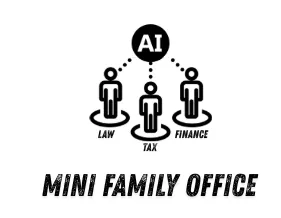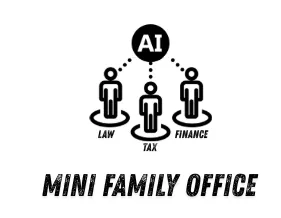
Debunk The Myth™
Discover The Truth From The Source

4: Charitable Tax Deductions: Unlocking Benefits for Individuals, Corporations, and Foundations
Charitable tax deductions are among the most flexible and powerful tools available to both individuals and organizations. For individuals, one of the most beneficial strategies is donating appreciated assets like stocks, real estate, or other investments.
By doing so, individuals can enjoy a double benefit: first, they avoid the capital gains taxes that would have been incurred from selling those assets, and second, they receive a charitable deduction based on the full market value of the donation. This creates a significant opportunity to maximize both tax savings and charitable impact.
For corporations, charitable contributions also offer substantial benefits. Corporations can generally deduct up to 10% of their taxable income through donations to qualified charitable organizations. This deduction aligns corporate social responsibility efforts with strategic financial planning, allowing companies to strengthen their community involvement while lowering their tax burden.
By integrating philanthropy into their business model, companies can create a sustainable, tax-efficient way to support causes that align with their values.
Take, for example, a private foundation I helped establish for a family. In the first year, they made donations consisting of both cash and appreciated securities. By doing so, they reduced their overall tax liability by nearly 50%.
This donation strategy was not only impactful in the present but also set them up for continued tax efficiency in the future. The unused portion of their charitable deductions can be carried forward over the next five years, ensuring that the family continues to benefit from tax savings year after year.
These tax benefits are rooted in key provisions of the Internal Revenue Code. For example, IRC §642(c) outlines charitable deductions specifically for estates and trusts, while IRC §501(c)(3) governs the tax-exempt status of nonprofit organizations.
These sections provide the legal framework for how charitable donations can be deducted and carried forward, making them invaluable tools for tax planning and wealth management.
If you haven’t already explored how charitable tax deductions can work for you, it may be time to evaluate the potential benefits.
Whether you’re an individual looking to optimize your portfolio or a business aiming to enhance your community impact, these deductions can be a game-changer in both your financial and philanthropic strategy.

© Copyrighted Material. All Rights Reserved. Become A Philanthropist LLC.
No Legal, Tax, Financial, or Investment Advice Contained - 100% Educational And Entertainment Purposes Only. No Attorney-Client or Fiduciary Relationship Is Formed By Contacting, Communicating, or Engaging With Us In Any Matter, Unless A Signed Agree Exists With The Terms and Conditions Of The Engagement.
